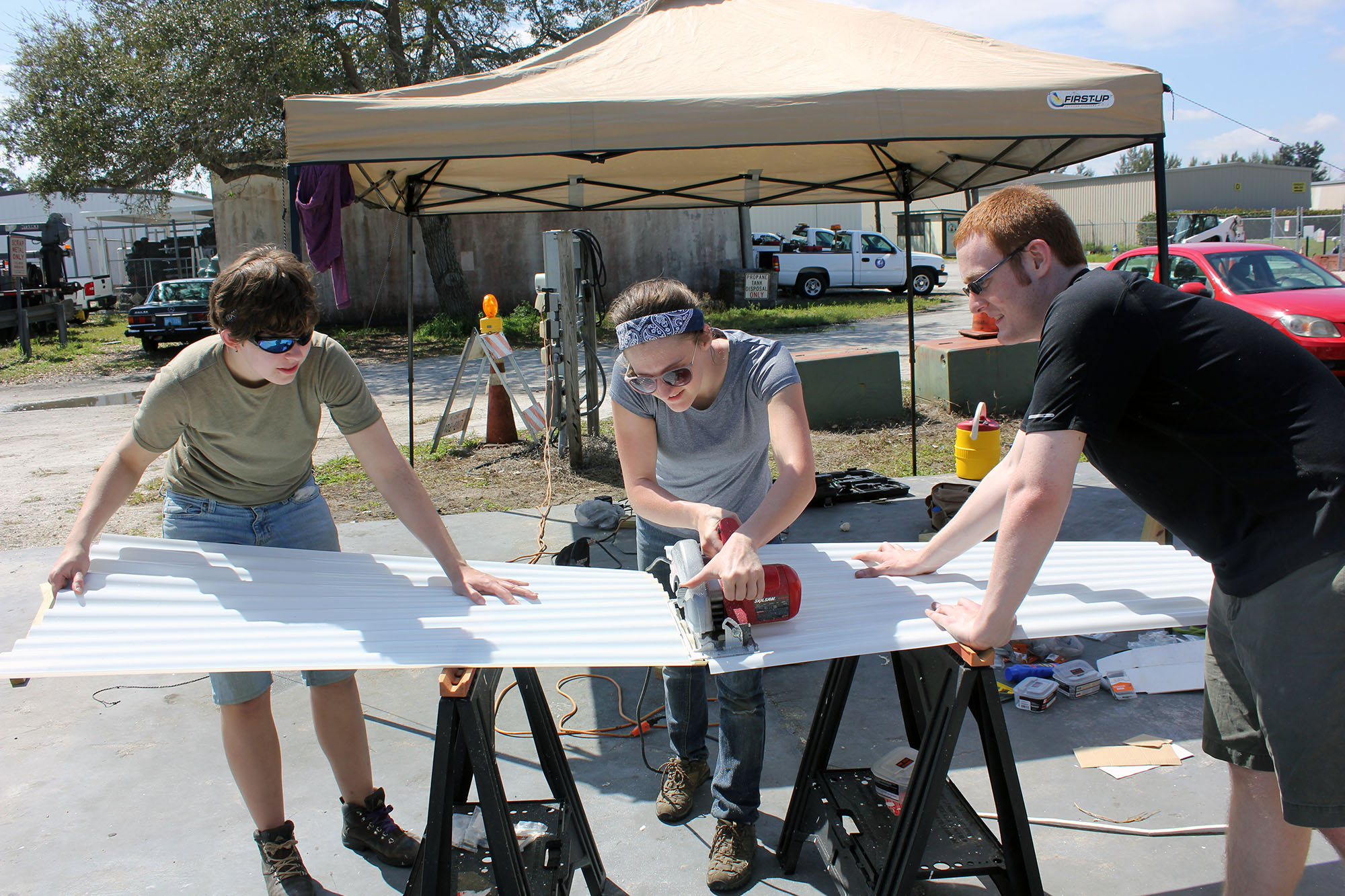Natasha Weisenbeck, a senior, and three other students, along with Lew Naylor, adjunct professor of chemistry, drove 20 hours from Goshen to Steward, Florida for a service trip to help build compost boxes.
Naylor, who oversees the GC compost program, found the opportunity for the Goshen College compost group when he previously went down to Florida to go on a swamp tour with a professor emeritus from GC. While there, Naylor began talking with Charles Barrowclough, who led the swamp tour, and who works for a land trust called Treasured Lands Foundation Inc. (TLFI) in Steward, Fla. Barrowclough also serves on the county’s soil and water conservation board, which is focused on increasing the nutrients in soil while also working with water preservation.TLFI had begun making connections to begin a composting program and start a competition. They planned on utilizing compost from a horse stable, using the manure and mixing that with vegetable surplus, produce that has gone bad, or items that didn’t sell through their local grocery chain.
Once Barrowclough met Naylor, he asked for advice on how to start their own project.
Naylor told them about the GC composting project and Barrowclough liked the system and design. He asked if Naylor would like to come down and build compost boxes for him.
Originally, Weisenbeck, who is the current composting manager, was the only one planning on going on the trip, until they turned it into an alternate spring break option in the spirit of service.
She created a team of three other students, including Marion Munley, a senior; Angie Troyer, a senior; and Aaron Kauffmann, a 2013 graduate.
Munley and Troyer both helped with construction and conceptualized the project. Kauffmann, who is in charge of Algae Town, has had a lot of experience with composting alongside Weisenbeck.
They all stayed in an RV on a campsite while they did their project. They also interacted with those from TLFI.
“It was great in the sense that the people on the board were very hospitable to us,” said Weisenbeck. “They took us out to eat 5 times.”
Goshen paid for the students’ food, and TLFI paid for their transportation down to Florida. It was all voluntary.
“We got to be sun burned in exchange for housing and food,” said Weisenbeck. “I considered it voluntary service.”
Even though Goshen’s compost program helped create boxes for TLFI, there were great differences between their designs and what GC uses for composting.
For example, TLFI’s lids opens up like doors, while Goshen’s lids just slide off; the foam used around TLFI’s boxes is much thinner than the ones that must survive the harsh winters at Goshen.
Every composting project is different because people have different needs. Yet Charles Barrowclough hopes to continue their relationship with GC’s Compost Program every year or every other year.
Despite their differences, Weisenbeck said, “They see composting like we do, as an experiment.”



